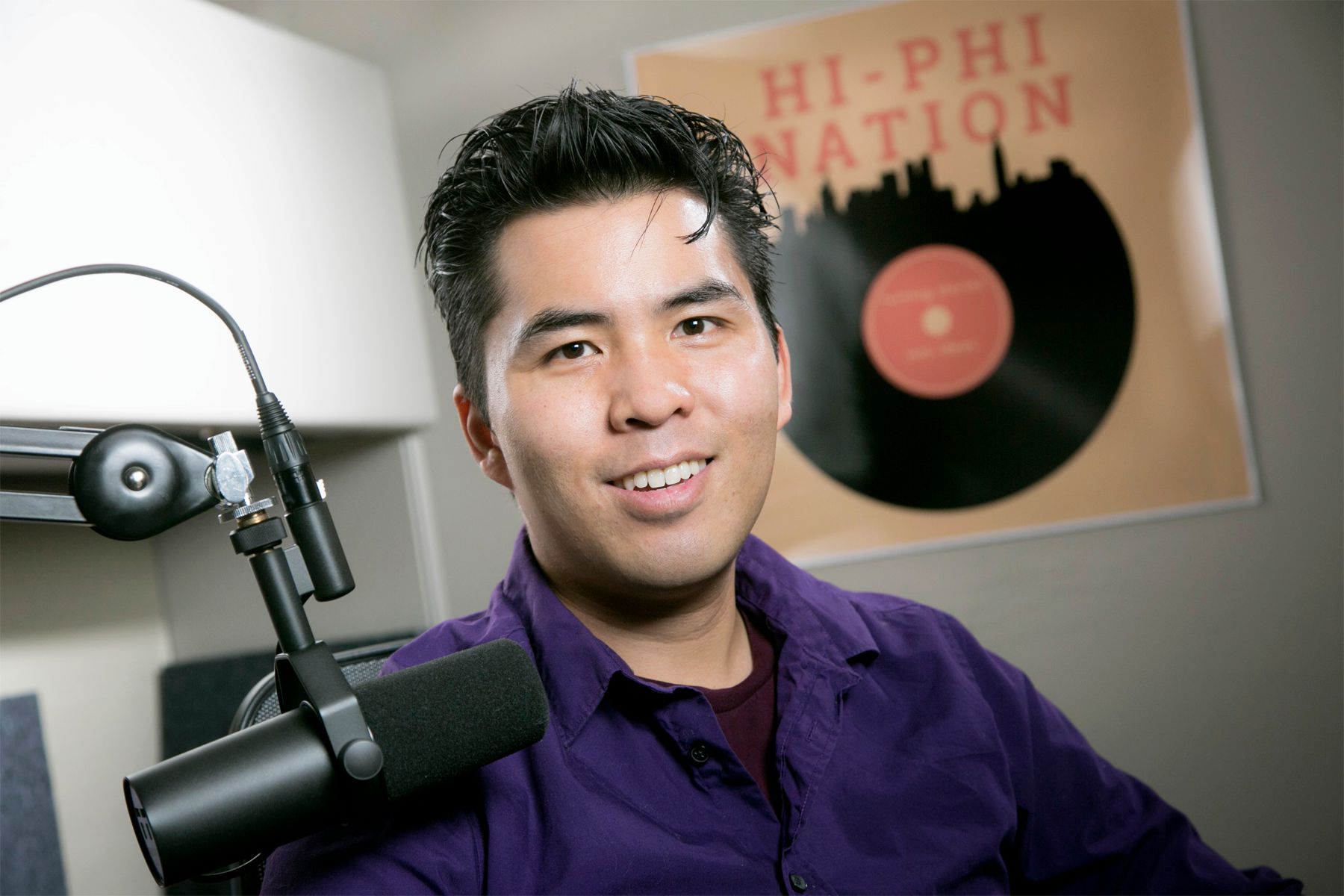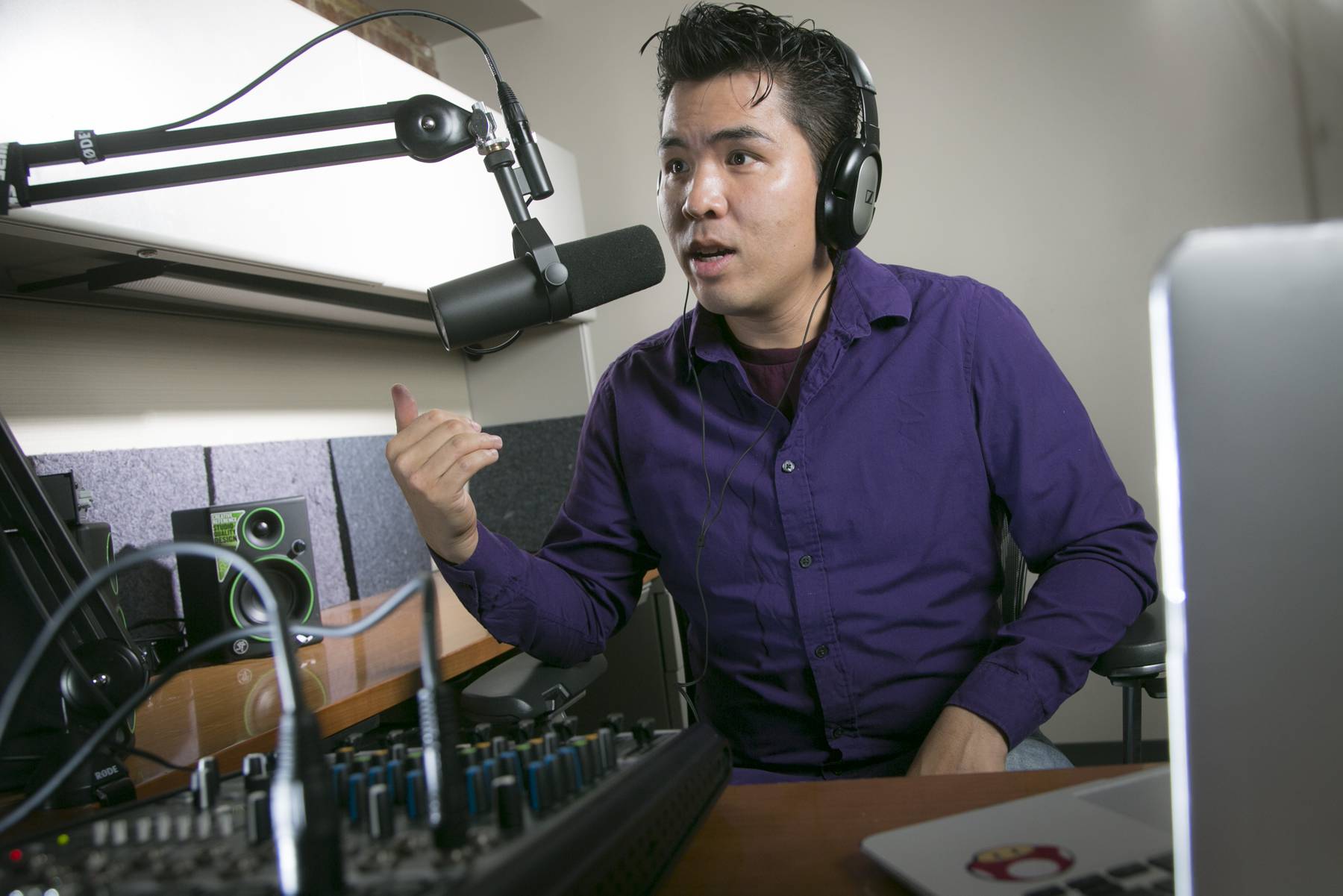A New Way of Doing Philosophy
A New Way of Doing Philosophy
What ethical dilemmas does a soldier face when he or she witnesses atrocities on the battlefield? Why does society often honor the wishes of the dead even when they conflict with the needs of the living? What theological questions are raised when an evangelical Christian is fired for suggesting that she worships the same God that Muslims do?

Vassar Associate Professor of Philosophy Barry Lam raises these questions, and many others, in a series of podcasts called Hi-Phi Nation, and he draws on philosophical discourse to answer them. Ten weekly episodes will be released free as a podcast starting Jan. 24 on iTunes, YouTube, Google Play and elsewhere and at hiphination.org.
Lam says the idea for Hi-Phi Nation began germinating five years ago after he attended a conference at the U.S. Military Academy at West Point. “What I learned at that conference was that philosophy is a very big deal at West Point,” Lam says. “I was surrounded by a dozen soldiers, all of whom had served in wars and who wanted to become philosophers. I wanted the public to hear their stories and hear about their philosophical ideas about the morality of war.”
I was surrounded by a dozen soldiers, all of whom had served in wars and who wanted to become philosophers. I wanted the public to hear their stories and hear about their philosophical ideas about the morality of war.
At the time, Lam says, he was a fan of podcasts and documentary radio shows, such as NPR’s This American Life and Freakonomics Radio, which addressed contemporary issues through narrative storytelling. But he noticed that few, if any, of these shows went as deep as philosophy does in providing insights. “Most insights about human experience on these shows were drawn from the social and life sciences—economics or neuroscience or cognitive science,” he says. “Philosophy is about providing insights into the human condition and connects naturally with narrative storytelling, but there was nothing in this genre of audio that was philosophy-based.”
When Lam was granted a sabbatical last year and secured a one-year fellowship at Duke University, he decided it was time to fill this gap. Working in a makeshift studio that he built himself in his office at Duke, he came up with the topics, then enlisted experts in the field and fellow philosophers to contribute to the show.

Lam calls Hi-Phi Nation “an enormous enterprise that has utilized everything I learned in life, from building a recording studio to music and sound-mixing to playing the role of an investigative reporter.” He says he was first drawn to philosophy as an undergraduate at the University of California at Irvine because it was so challenging. “I had never been exposed to the idea that you can think deeply and in such detail about abstract questions,” he says.
Lam double-majored in philosophy and English at UC Irvine and was accepted into a PhD program in philosophy at Princeton. While he was at Princeton and for most of his ten years at Vassar, he concentrated on questions about knowledge and rationality. He began to focus more on connecting storytelling and contemporary philosophy in the last 18 months, he says. Hi-Phi Nation is the ultimate result.
Lam says he’s looking forward to feedback from colleagues and listeners but has no specific expectations about how Hi-Phi Nation will be received. “Audio podcasts are a rapidly growing field, and if I get 50,000 listeners by the end of the ten-week run, I will have exceeded my own expectations,” he says. “I’m not making any money; my mission has been to integrate storytelling and philosophy in order to bring philosophy to the widest possible audience. I want this to be a platform for a new way of doing philosophy.”